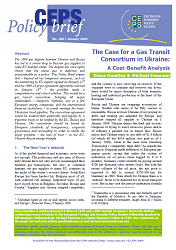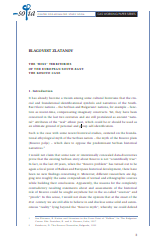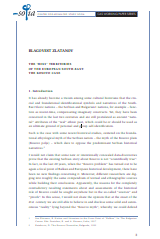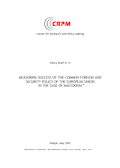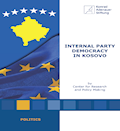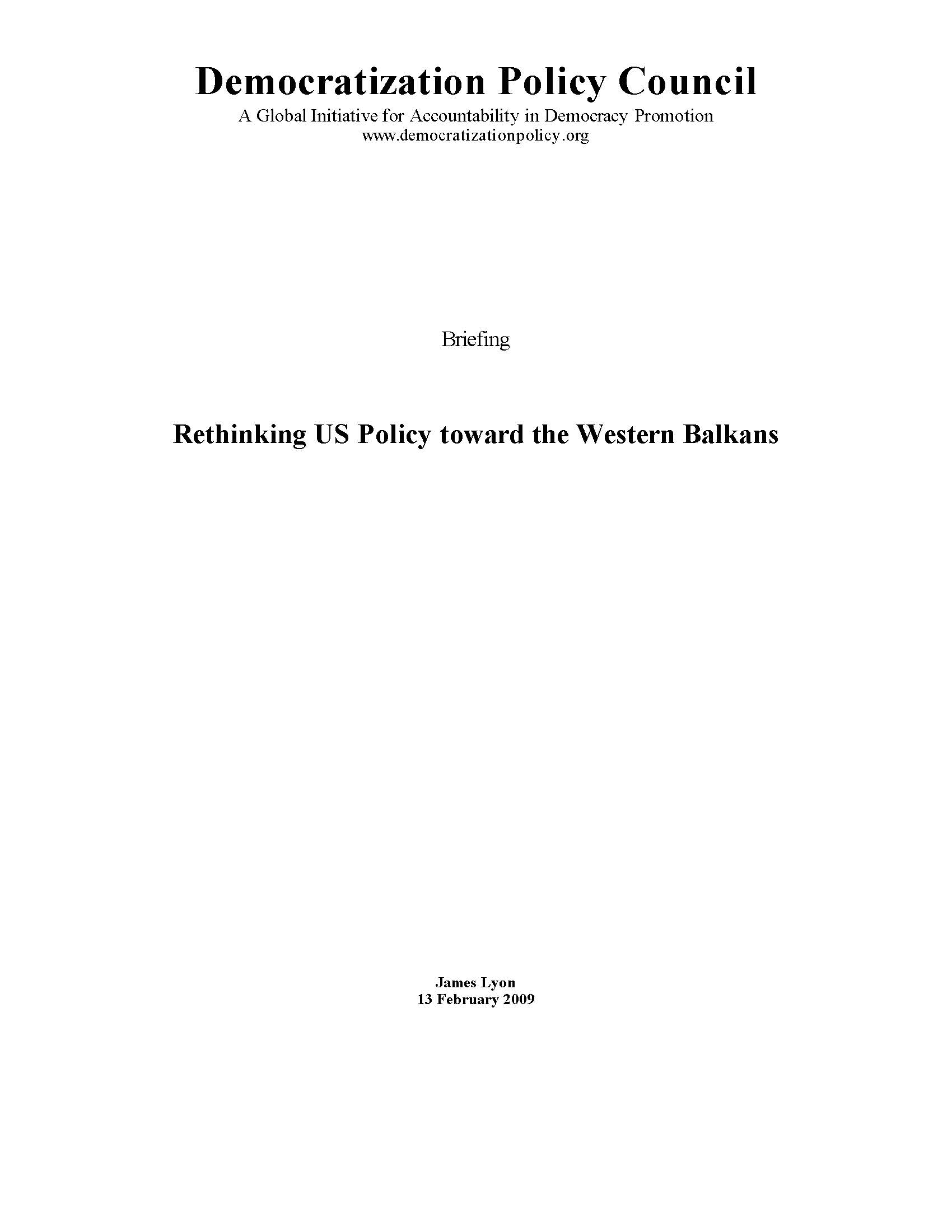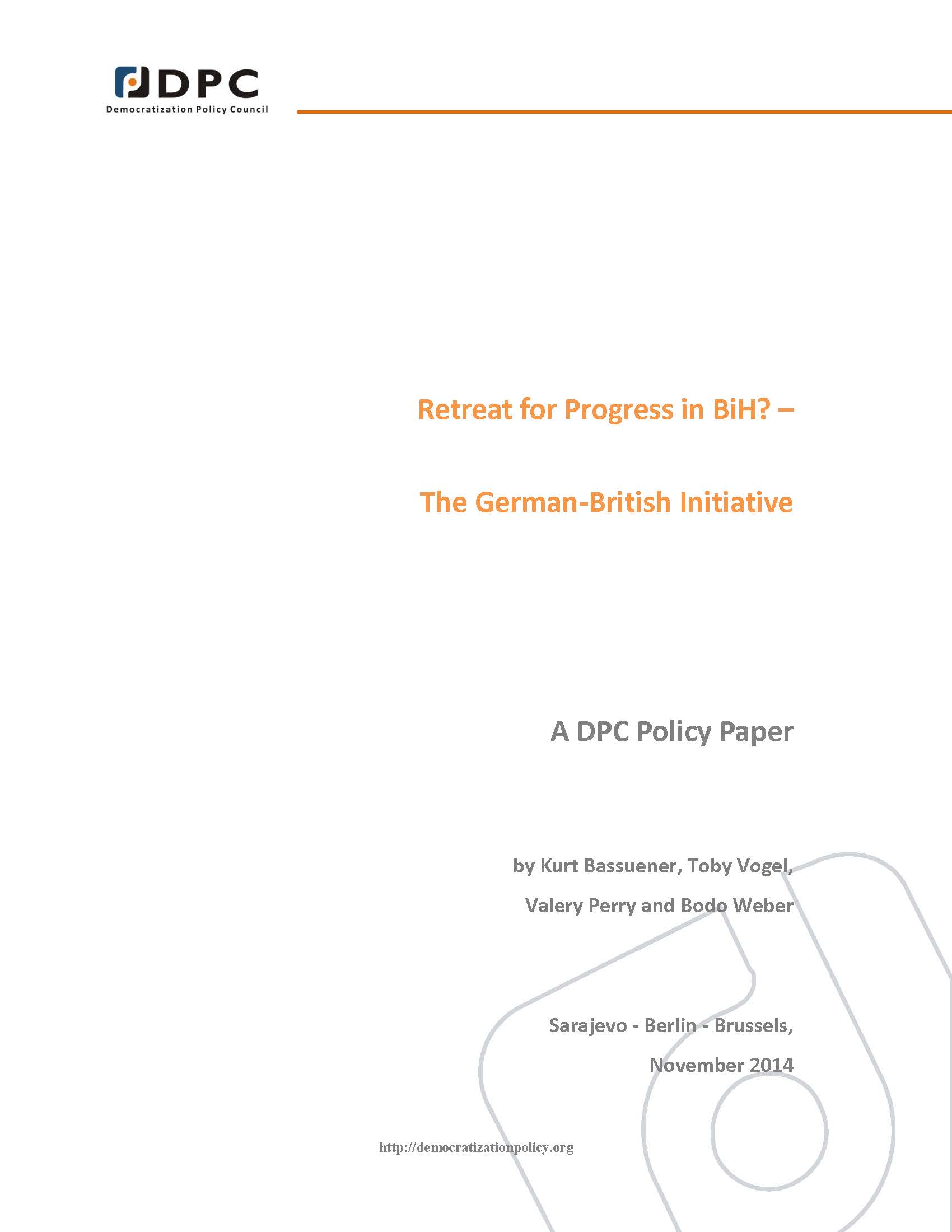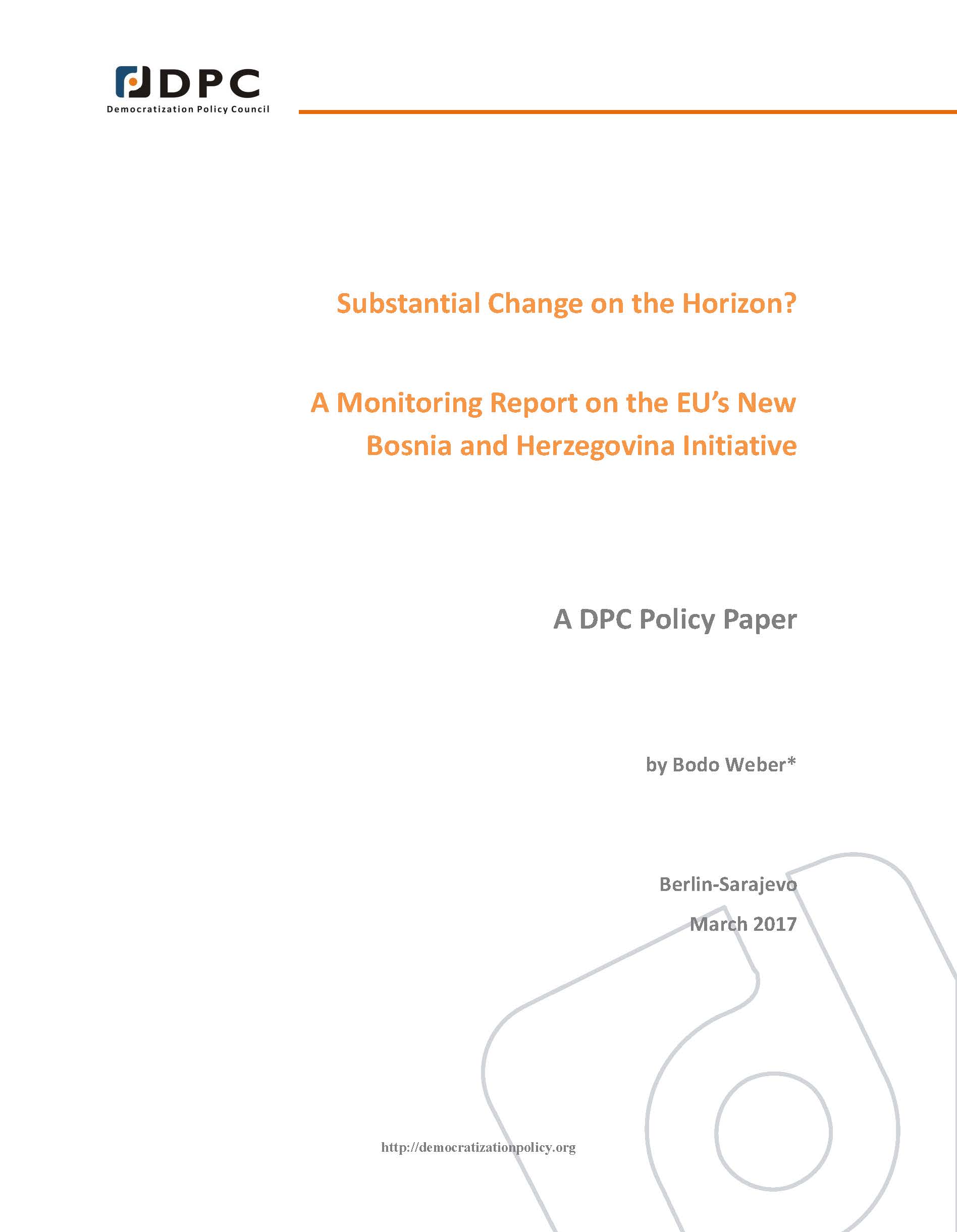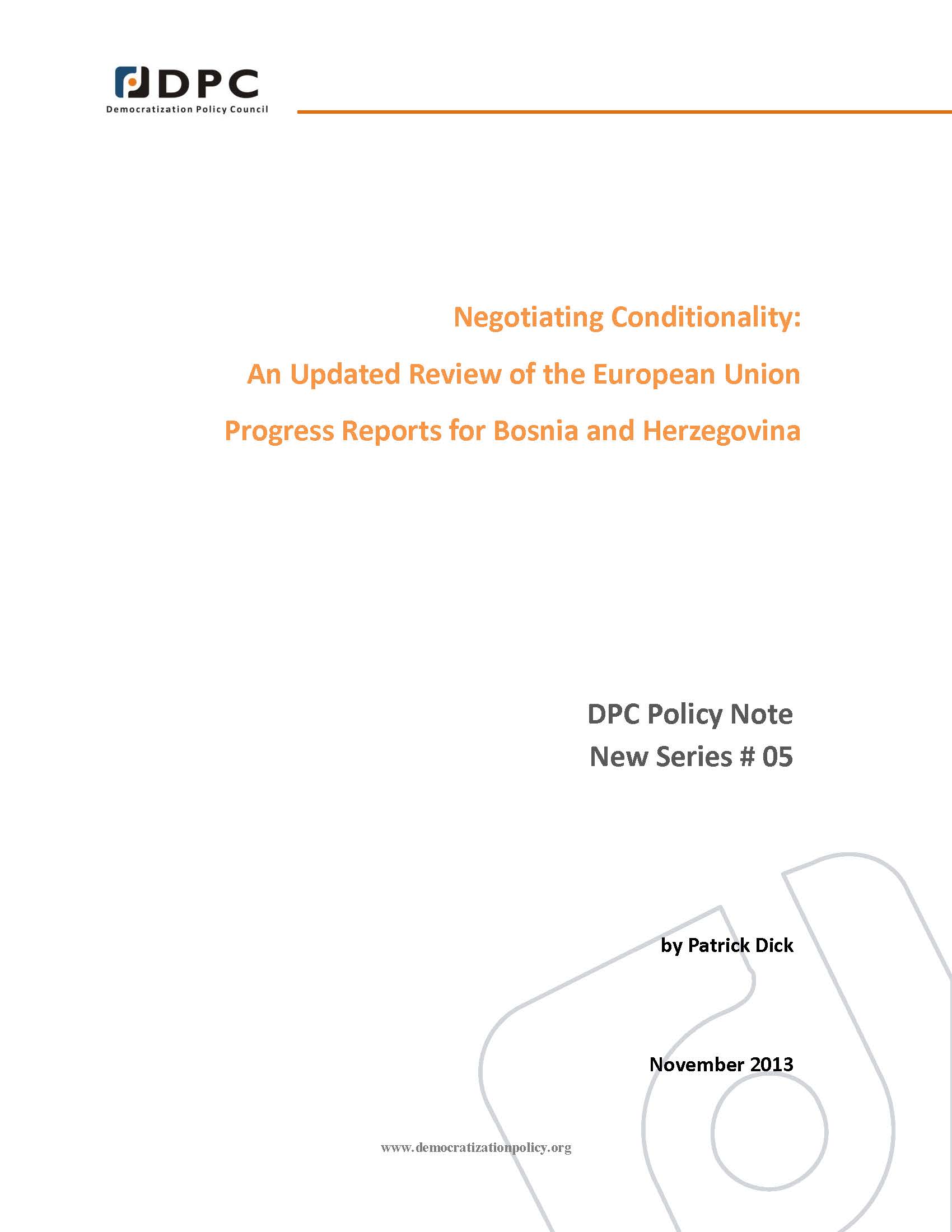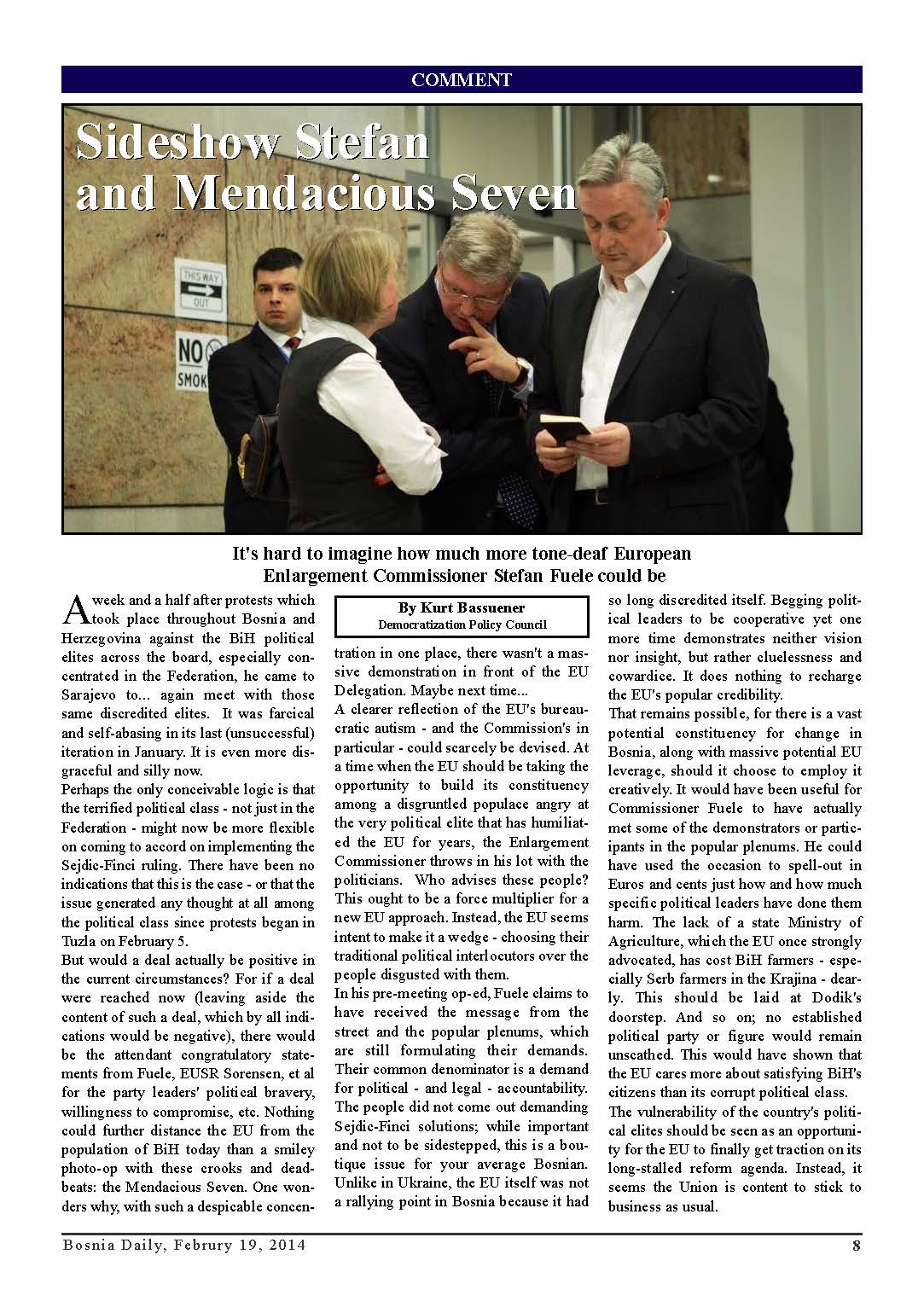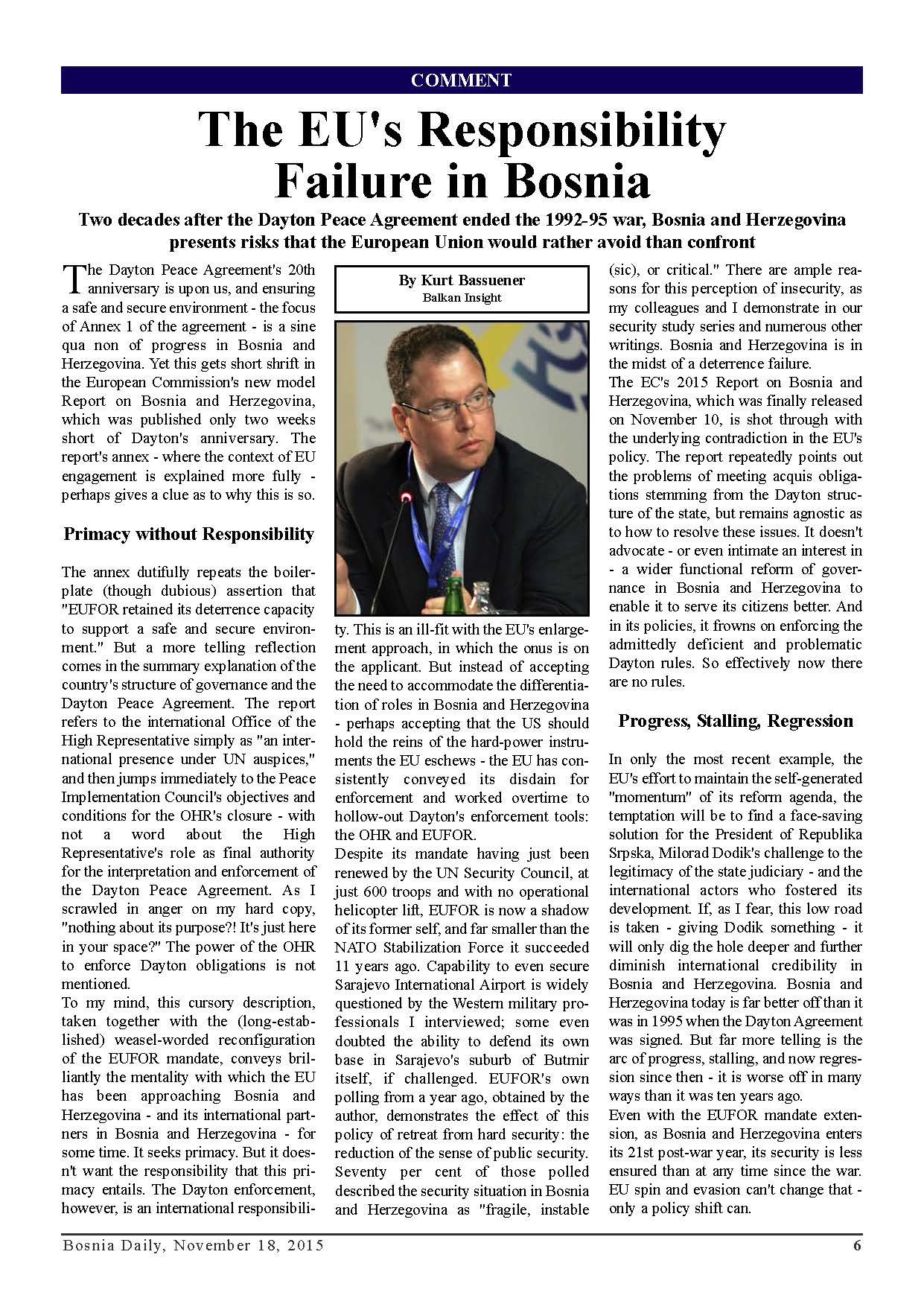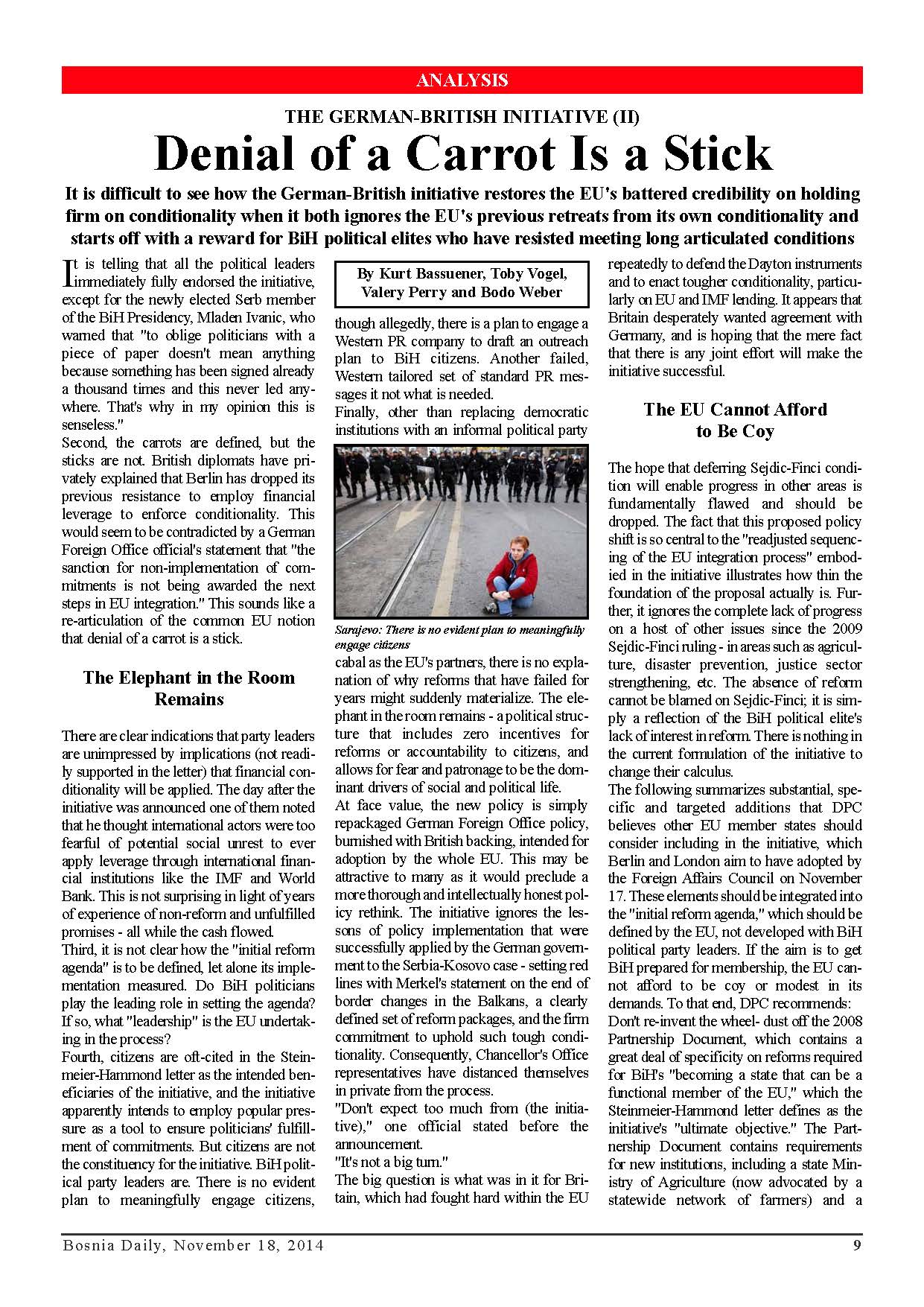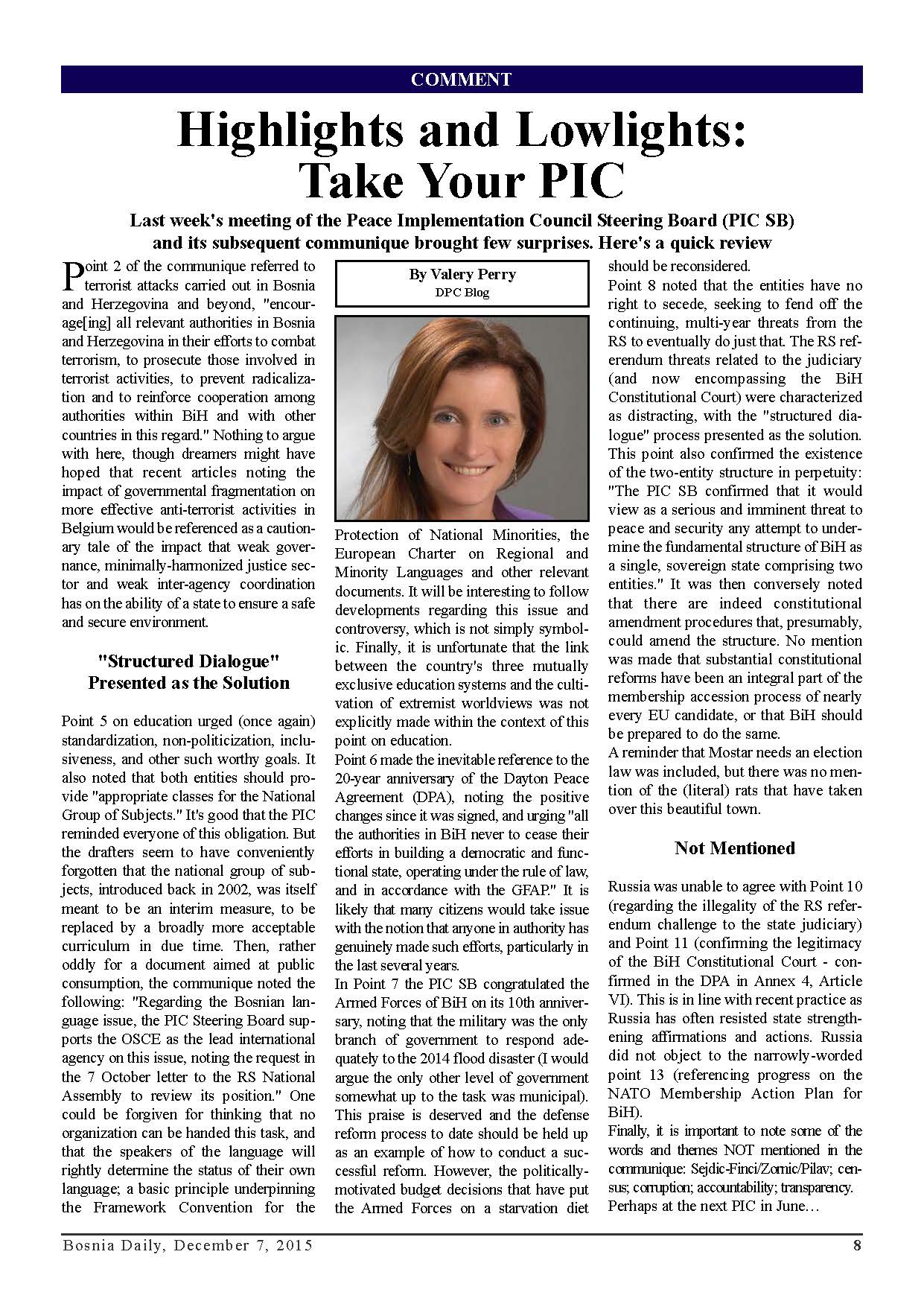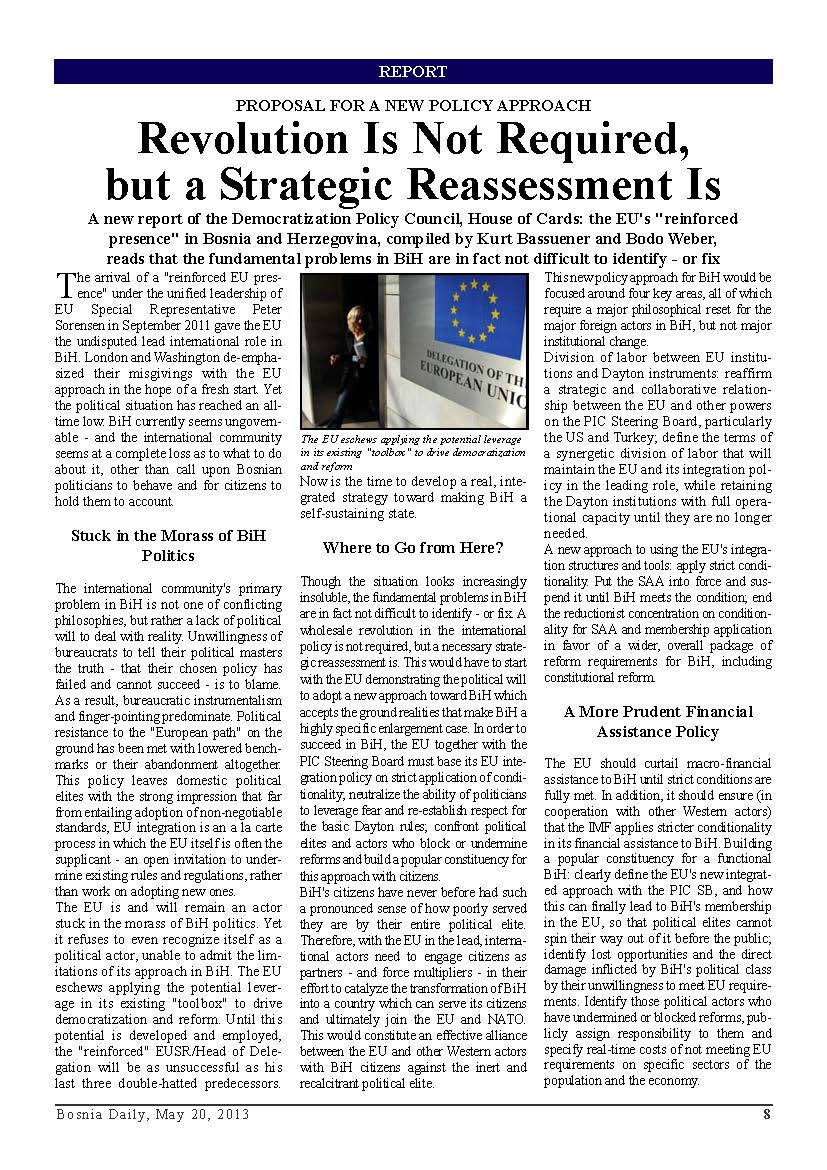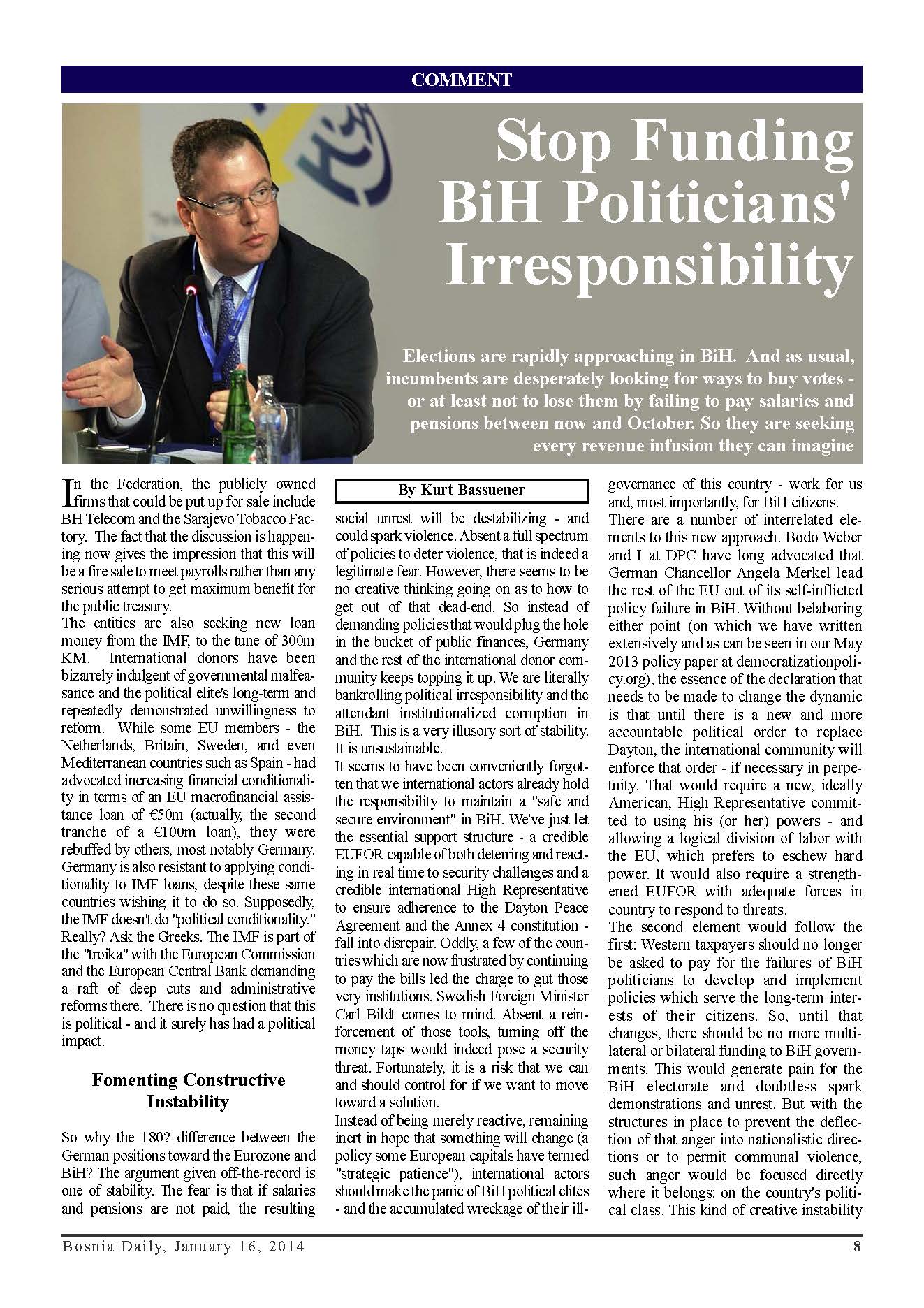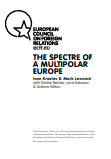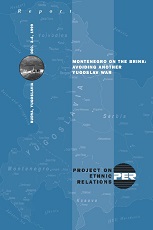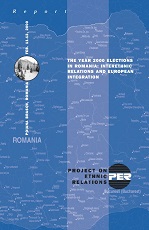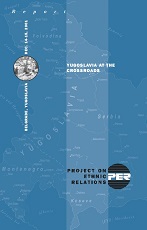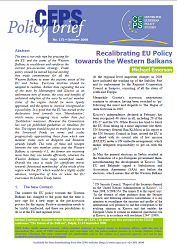
№175. Recalibrating EU Policy towards the Western Balkans
The time is not only ripe but pressing for the EU and the states of the Western Balkans to recalibrate and reinforce the current pre-accession strategy. Trade policy should be moved beyond existing free trade commitments for all the Western Balkans to enter the customs union of the EU and Turkey. Eurozone doctrine should be adapted to realities. Rather than regarding the use of the euro by Montenegro and Kosovo as an unfortunate turn of events, the costs and benefits of unilateral adoption of the euro by not-yet member states of the region should be more openly appraised, and the option to ‘euroise’ recognised as a possibility. It is good that the EU has moved at the declaratory level towards visa ‘liberalisation’, which means scrapping visas rather than just ‘facilitation’ measures. However the Commission has not yet published guidelines or timelines for this. The region should be put on track for access to the Structural Funds on terms and scales progressively approaching those from which new member states such as Bulgaria and Romania already benefit. The ratio of these aid receipts between the new member states and the Western Balkans is currently 4:1; the former are receiving more than they can handle efficiently, whereas the Western Balkans have huge unsatisfied needs. Overall the case is made for significant moves towards ‘functional membership’ of the whole of the region with the EU, which would be a highly useful advance, irrespective of how or when the EU overcomes its Lisbon Treaty hiatus.
More...
